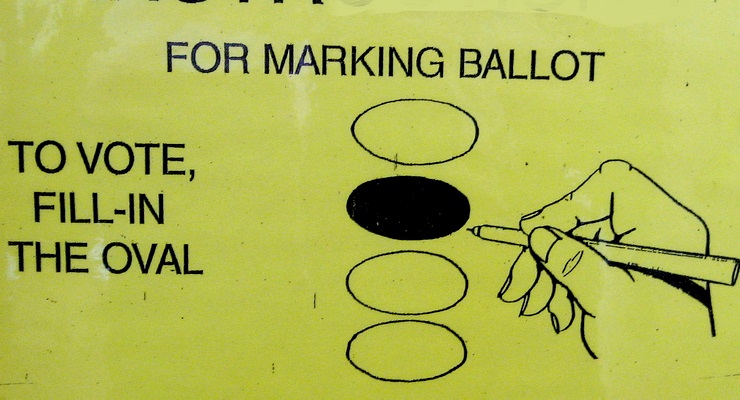
Democracy, elections and voting at Democracy Chronicles
Oregon may become the 12th state to approve a law to introduce a National Popular Vote system. From the post by Ballot Access News:
On May 18, the Oregon House Rules Committee passed HB 2927, the national popular vote plan bill. It now moves to the house floor, where it has passed in three previous sessions of the legislature. The bill has always been blocked by Senate President Peter Courtney, a Democrat. However, Courtney now says he will not block the bill if it is amended to provide that the voters will vote on the plan in November 2018, and that only if the voters approve it will it become law.
Also, a timeline leading up to the event is provided by National Popular Vote Inc., a “501(c)(4) non-profit corporation whose specific purpose is to study, analyze and educate the public regarding its proposal to implement a nationwide popular election of the President of the United States”:
- On May 18, 2017, the Oregon House Rules Committee is scheduled to vote on the National Popular Vote bill (status of HB 2927).
- On March 23, 2017, University of Oregon Professor Priscilla Southwell and attorney Barry Fadem (President of National Popular Vote) spoke in Eugene, Oregon at an event sponsored by the League of Women Voters of Lane County.
- On March 14, 2017, the Oregon House Committee on Rules conducted a hearing on the National Popular Vote bill (status of HB 2927). Over 200 people submitted written testimony to the committee and over 30 people testified in person.
According to an analysis FairVote, a non-partisan, 501(c)(3) non-profit organization:
The National Popular Vote (NPV) plan guarantees election of the presidential candidate who receives the most popular votes in all 50 states and the District of Columbia. The NPV plan is a state statute in the form of an interstate compact. It creates an agreement among states to award all of their electoral votes collectively to the presidential candidate who wins the national popular vote. This agreement takes effect only once the participating states together hold a majority of electoral votes (270 of 538)–guaranteeing that the winner of the national popular vote will win an Electoral College majority.
They also note:
State legislators have introduced NPV legislation in all 50 states and the District of Columbia. NPV legislation has now been enacted by 11 jurisdictions possessing 165 electoral votes, or 61% of the 270 electoral votes needed to activate the compact.
Leave a Reply